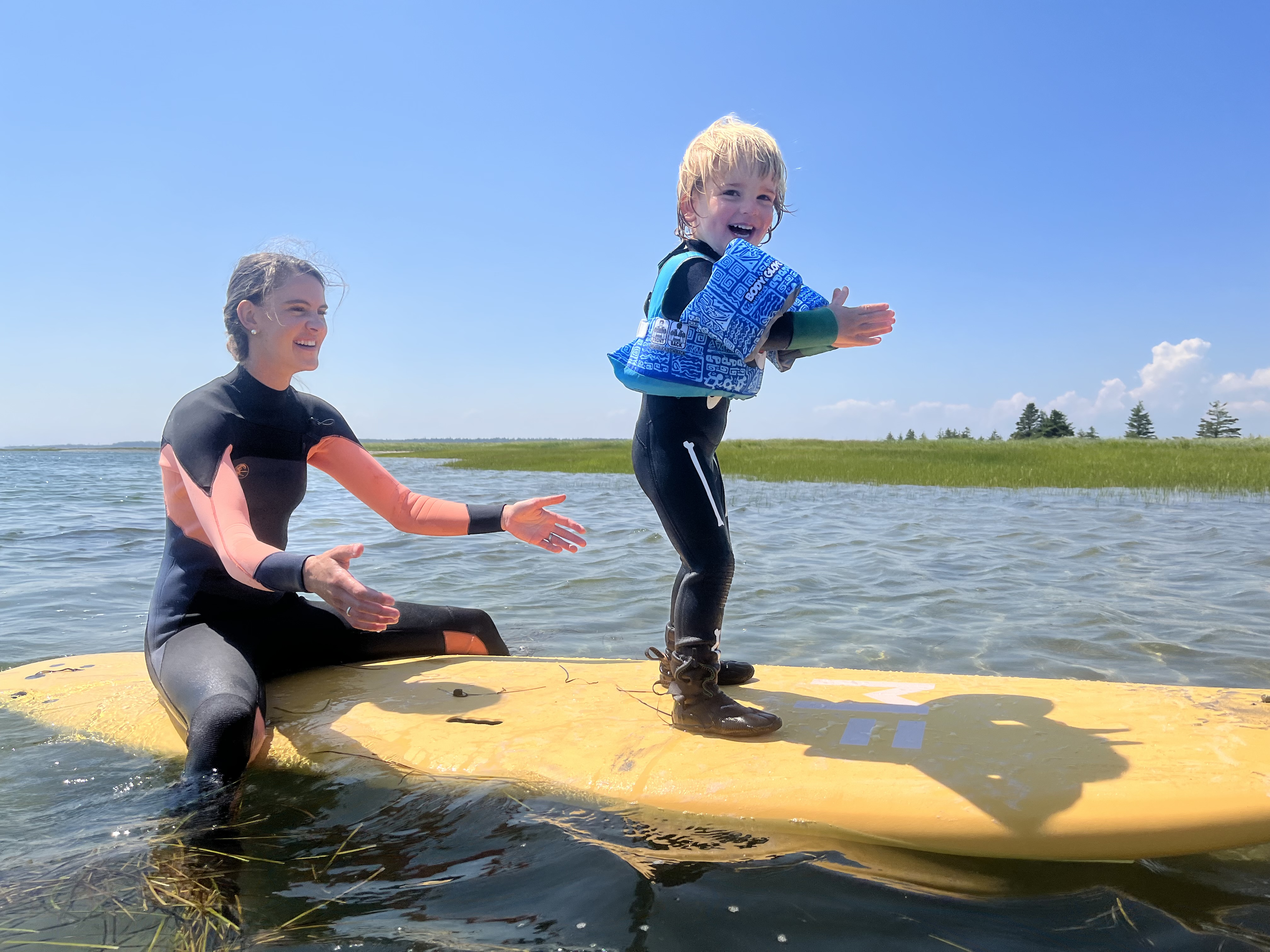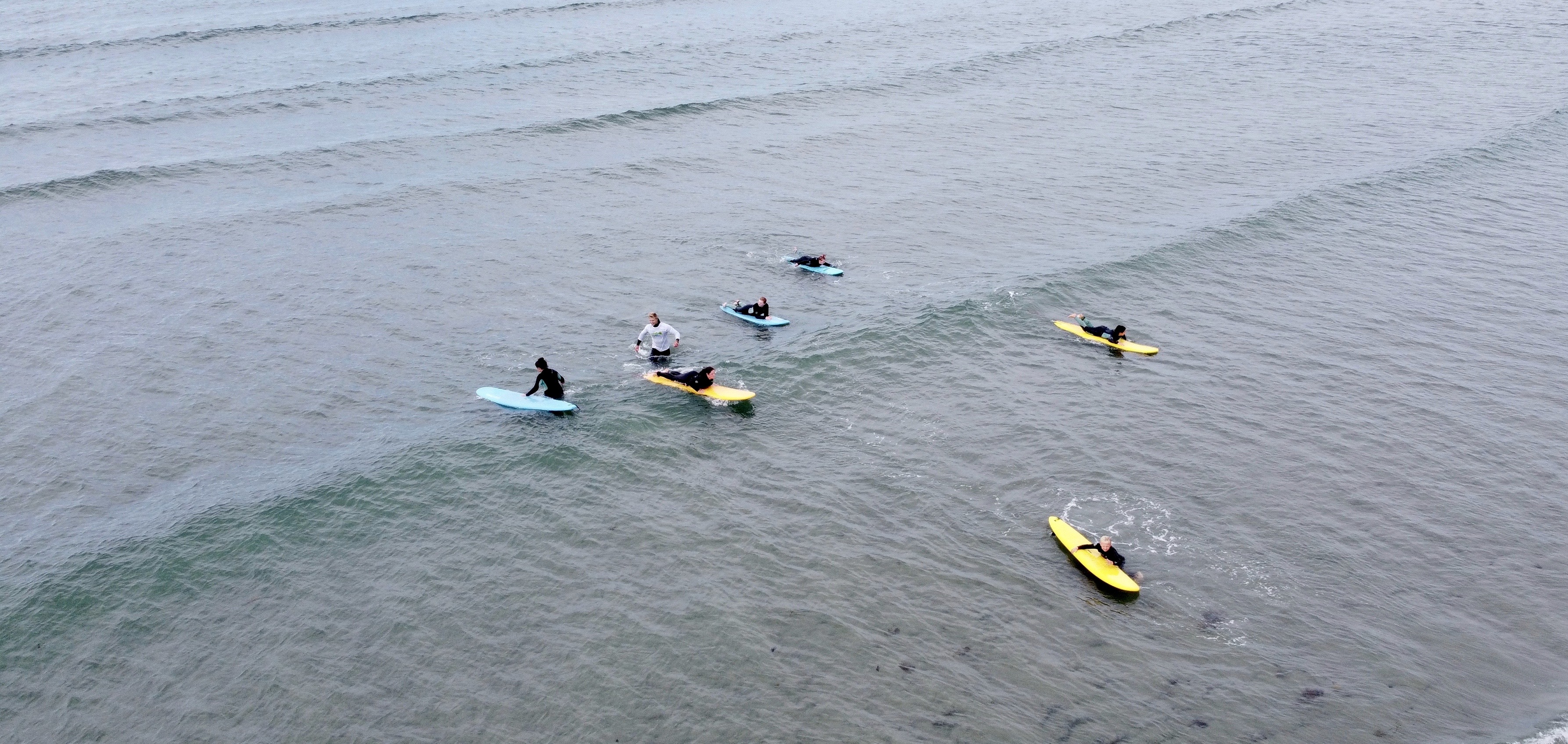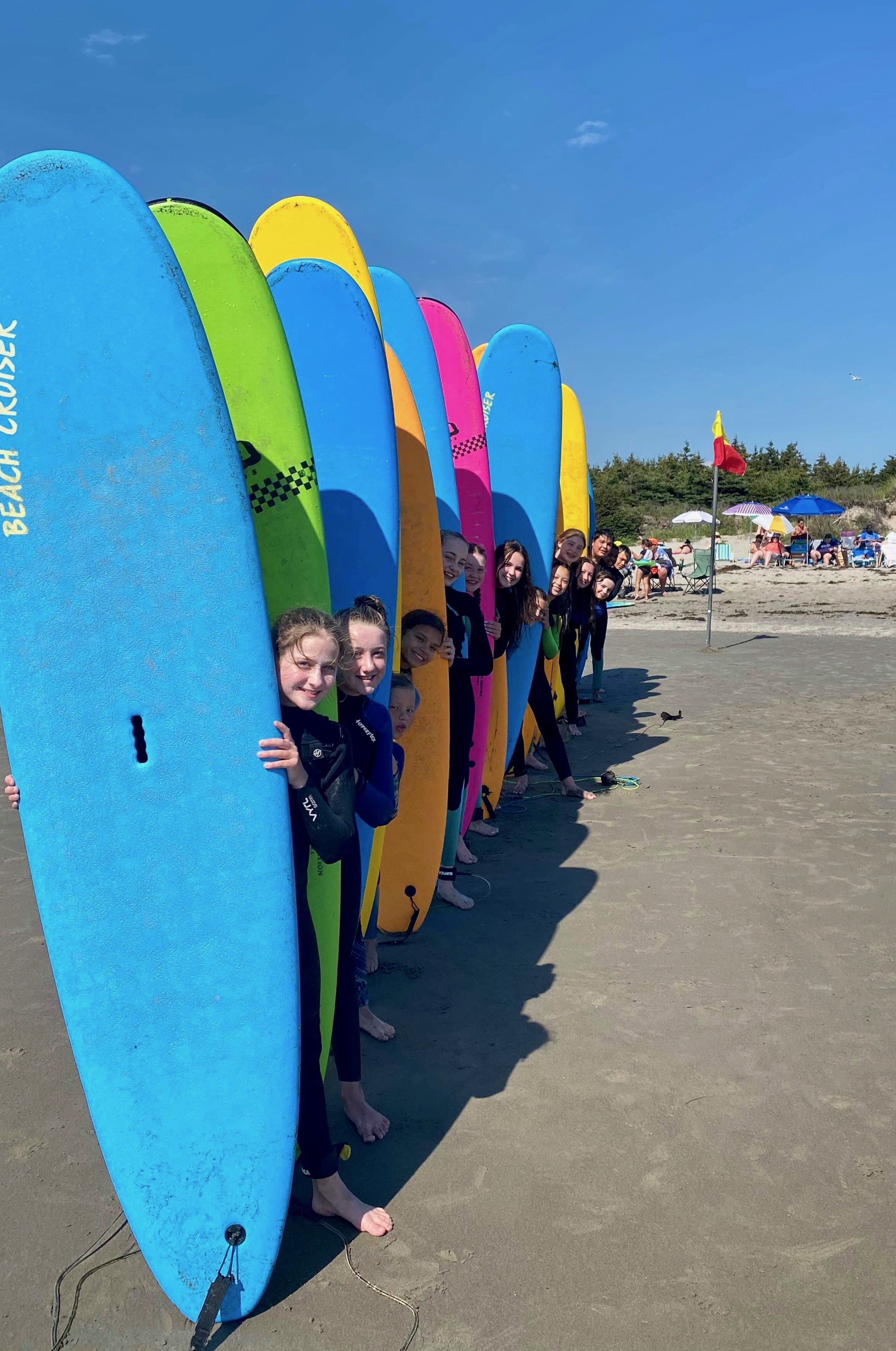Riding the Wave
In 2022, Halifax Surf School received a $4,500 grant from CUA’s Community Investment Grant Program to increase available cold-water rental inventory and expand their rental season. We recently caught up with owner Mark Moore to discuss the grant’s impact a year and a half later, as well as what’s new with Halifax Surf School.

Mark Moore has surfed for the past 17 years. Eight years ago, he and his wife started Halifax Surf School so they could make a living doing the sport that they’re most passionate about. This is “the dream of a lot of people,” he notes.
Halifax Surf School is open seasonally from May 1st until October 31st and often sees a mix of local surfers as well as visitors to the province who stop by to catch waves. Located at the beautiful and sandy Martinique Beach, which is known for having the most consistent waves in Nova Scotia, the school offers rentals and surfing lessons for visitors of any experience level.
Since opening, Mark says that they’ve experienced several years of tremendous growth, including hiring on 10 staff members. However, it was keeping up with the volume of customers that posed the greatest challenge in recent years. On the busy days especially, the Surf School realized that they needed more inventory to meet the growing demand. In 2022, Mark applied to CUA’s Community Investment Grant Program and was selected to receive funding to increase their inventory of cold-water wetsuits and boards, which in turn extended their season.
“The water stays cold here until the end of June,” Mark explains. “So, you need the hooded wetsuits all spring and all fall. Now we’ve got a large inventory of the hooded suits, booties, and gloves so we can give people a good surf experience outside of the peak ten-week summer season.”
Halifax Surf School was recently able to accommodate a group of 42 guests visiting town for a swimming competition, which was made possible by the Grant Program and having access to a larger rental fleet of gear.
Of the Program’s application process, Mark explains that it was seamless and easy to complete. “Sometimes applications can be kind of tedious, and things aren’t formatted properly. But CUA’s application was very straightforward, which I appreciated very much. It was streamlined, clear, and succinct.”
The growth of their rental fleet isn’t the only exciting update; in December, they were able to send three of their instructors to New Zealand to teach together at another surf school for five months. As their business expands, he notes how incredible it is for instructors to be able to have an influence outside of Canada and also bring knowledge from their own experiences back to Nova Scotia to keep improving their products and services. Some of the employees will be heading to Australia this winter.
For anyone who is interested in learning how to surf, but may be nervous to begin, Mark assures us that “everybody has been there,” and that the School is used to meeting people at the beginner level. “I think we get a lot of people who say ‘Well, I’ve never surfed before.’ Our reply is, ‘That’s exactly why we’re here.’”

Many people may think of places like California or East Coast Australia when they think of developed, mature surfing markets, Mark explains. While the waves here in Nova Scotia are admittedly not always the biggest, “they are often plenty fun to enjoy; they’re reasonably, consistently small in the summer. At Martinique for example, it’s the most consistent beach in the province, meaning you can surf here more than anywhere else, just due to availability of swell, where a lot of other places wouldn’t have any waves. We’re able to teach 28 days a month at Martinique, which is just incredible.”
Mark says the local surf schools, of which there are three right around the Eastern Shore area, are all very good. And though surfing is a sport where you can progress on your own, “it’s important to have a few hours of key basic instruction, so it’s really necessary to take a lesson with one of the three surf schools around here. They’re all excellent. You’re in good hands all the way around.”
For young prospective surfers, a new Tuesday drop-in teen youth camp is quite popular, Mark shares. “Any Tuesday, you can just sign up on our website and bring your teenager out for a surf day, five hours per week.” With no pressure to commit to every Tuesday, Mark explains that it’s a good way to get introduced to surfing, and to meet some other kids that “hopefully will become our staff in a few years!”
When asked about any advice to other prospective business owners, Mark recommends starting small and reinvesting most profits back into the business for the first few years so you can build up your resources. He suggests phasing the business in, and then growing as the market dictates.
If you’re interested in learning more about Halifax Surf School, visit their website or stop by their rental and lesson kiosks at Martinique Beach until October 31st.
Our team at CUA is happy to have been able to help Mark on his journey, and we look forward to supporting more organizations like Halifax Surf School through our Community Investment Grant Program in 2024. See other past grant recipients.



